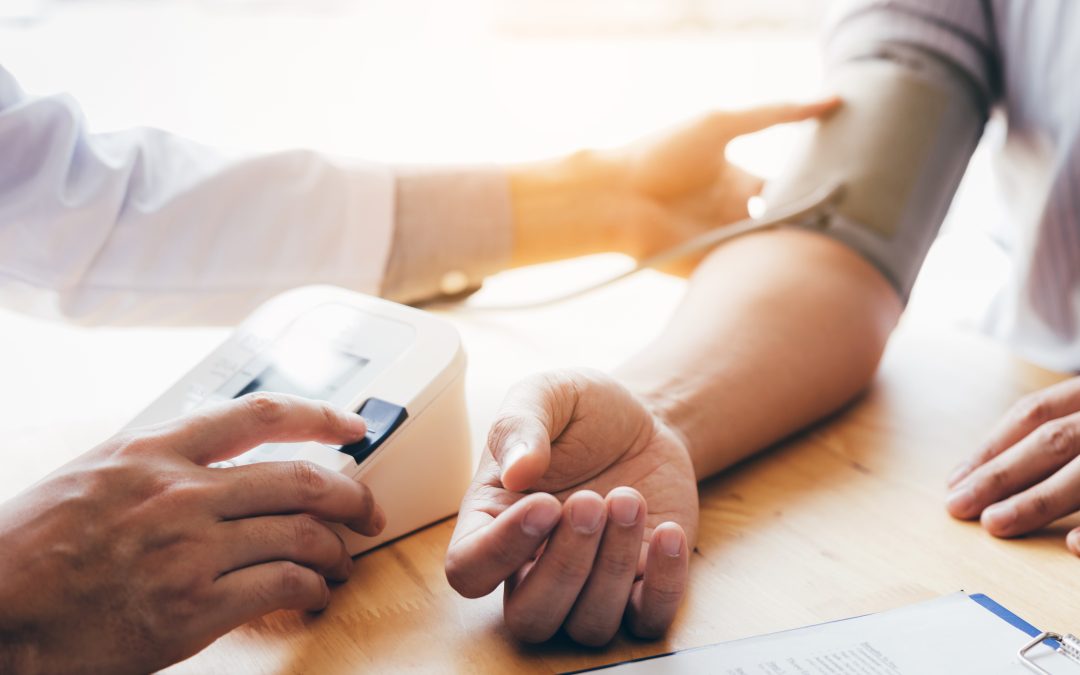WHAT IS HYPERTENSION?
High blood pressure (Hypertension) is when you have a blood pressure reading that is consistently above 130/80. There are 2 stages
Stage 1 – where your BP runs higher than 130 but lower than 140 for the systolic (top number) and higher than 80 but lower than 90 for your bottom number (diastolic).
Stage 2 – where your blood pressure remains consistently above 140 over 90.
Either an elevated systolic or diastolic number could be used to make a diagnosis of hypertension.
To get a good Blood pressure reading, you should make sure you have emptied your bladder and that it has been at least 30 mins since you had coffee or smoked, or exercised; sit with both feet on the floor, back supported for at least 5 minutes, and no talking during measurement; make sure your arm is supported (resting on a desk) with the machine on the same desk.
HOW DOES HYPERTENSION OCCUR?
The exact etiology of primary HTN is unclear but it is thought to occur as a result of numerous genetic and environmental factors having a compounding effect on the cardiovascular and kidney structure and function. There are also a number of risk factors that are strongly and independently associated with eh development of hypertension, some of which include:
Advancing age, obesity, family history, race, diet (high sodium), excessive alcohol consumption, lack of exercise, insufficient sleep, social factors (housing and food insecurity, lack of health insurance etc)
Secondary HTN can occur due to certain medications prescription (e.g, oral contraceptives etc.) over counter drug use (such as decongestants, NSAIDS etc), illicit drug use (such as methamphetamines), and certain medical conditions
“WHY” IS THIS IMPORTANT FOR YOU?
Hypertension is the most preventable modifiable risk factor for cardiovascular disease. Lifestyle modification is of utmost importance in controlling HYPERTENSION – change your diet, increase or begin exercise as applicable, cut down on any heavy alcohol consumption, talk to your doctor about any medications you are concerned about.
If you find that your blood pressure is consistently above 140/90, be sure to schedule an appointment to talk with your primary care provider about this.
If your Blood pressure is 180/120 and you have symptoms such as chest pain, vision changes, difficulty speaking, back pain, numbness or weakness, dizziness, shortness of breath, CALL 911.

